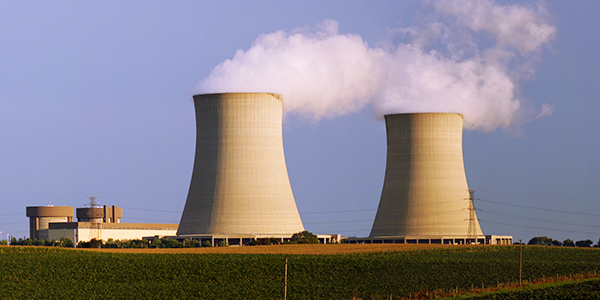Exelon officials confirmed during a third-quarter earnings call Wednesday that the company is considering spinning off its generation business into an independent company.
CEO Christopher Crane said the company began a review of its corporate structure earlier this year with the help of outside advisers. The review resulted from the evolving landscape of the generation business and the shrinking of “competitive integrated companies in our sector,” Crane said.
The news comes just a few months after Exelon announced the closing of its Byron and Dresden nuclear plants in Illinois, which face hundreds of millions of dollars in revenue shortfalls because of declining energy prices. (See Exelon to Close Ill. Nukes as Gov. Touts Clean Energy Plan.)
Crane said the goal of the review is to see whether two healthy companies could be created that can stand on their own financially and “provide the support needed for the balance sheets, the customers, the employees [and] the shareholders as we go forward.”
“I want to emphasize that the separation of the companies would involve addressing some complex operational, financial and regulatory issues,” Crane said. “No decision has been made, but we continue to do the work to determine the best outcome for our stakeholders.”
Nuclear Plants
The Byron nuclear plant is slated to close in September 2021; the Dresden plant will shut down in November 2021; and Mystic Units 8 and 9 will retire at the expiration of its cost-of-service commitment in May 2024. (See FERC Rejects Exelon’s Mystic Complaints Against ISO-NE.)
Exelon said it experienced a “$500 million impairment of its New England asset group and non-cash charges for Byron, Dresden and Mystic of $260 million.” It said the charges were related to materials and supplies, employee-related costs, construction and other items.
Crane said Byron and Dresden produce 30% of Illinois’ carbon-free electricity while also employing more than 1,500 full-time employees and paying $63 million in annual taxes. He said that without the plants and others at risk of closing, Exelon customers could pay $483 million in increased annual energy costs under PJM’s capacity market structure with an increase of 70% in greenhouse gas emissions.
(See Clock Ticking on Exelon Illinois Nukes Under MOPR.)
“Despite being among the most efficient, reliable units in the U.S. nuclear fleet, they face revenue shortfalls, declining energy prices, lack of capacity revenue and market rules that allow fossil plants to underbid clean energy resources in the PJM market auction,” Crane said.
Earnings
Exelon said it earned $501 million ($0.51/share) for the quarter, 35% less than the $772 million ($0.79/share) it earned for the same period last year. The company brought in $8.85 billion in total revenue for the quarter, slightly less than the $8.93 billion it posted last year.
CFO Joseph Nigro said the company was raising its year-end earnings guidance to $3 to $3.20/share from $2.80 to $3.10/share. Exelon has invested $4.5 billion so far this year to improve infrastructure and increase grid reliability, he said.
Shares of Exelon were down 25 cents, or 0.59%, to $42.22 as of closing on Wednesday.






